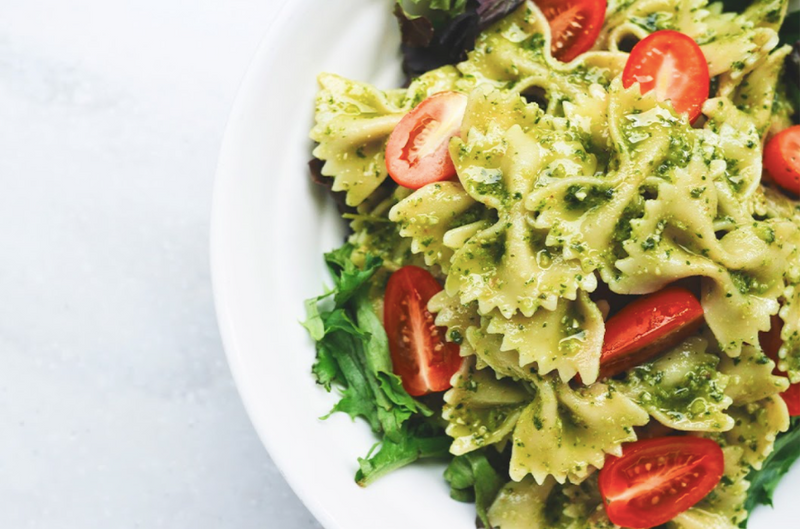Today, the term “diet” is often associated with the idea of losing weight; in other words the practice of a high-calorie diet. And while it's sometimes difficult to lose weight, it's just as difficult for some people to gain it. In this situation, it is useful to resort to a high-calorie diet. What is the high-calorie diet? When and how to adopt it? What are the highest calorie foods?
What is a high-calorie diet?
A high-calorie diet is one where your calorie intake is greater than your daily energy expenditure. The goal of the high-calorie diet is to gain weight by increasing the total amount of calories consumed per day.
Did you know ?
On average, to gain 500g per week, you must increase your caloric intake by 500 kcal per day compared to your traditional diet.
In what circumstances should you adopt a high-calorie diet?
People wishing to develop muscle mass will obviously increase their caloric intake to achieve this, but they are not the only ones. Indeed, some people have bodies that use more energy to function than others. In other words, their body burns the calories consumed more quickly. This is called having a fast metabolism. For these people, it can be difficult to achieve or maintain a healthy weight. It is therefore necessary for them to increase their daily caloric intake. In addition, certain inflammatory diseases or even injuries/operations requiring extensive healing require a lot of energy. This can lead to significant weight loss, as is often the case with cancer, hyperthyroidism or serious burns, for example.
Did you know ?
Diseases responsible for nutrient malabsorption such as Crohn's disease, for example, can lead to involuntary weight loss. The body is not able to absorb the calories consumed.
High-calorie foods to gain weight
Fruits and oilseeds.
|
Raisin |
280 calories |
|
Black olive |
162 calories |
|
Lawyer |
155 calories |
|
Banana |
90 calories |
|
Grape |
70 calories |
Legumes and tubers.
|
Soybean |
420 calories |
|
Lens |
330 calories |
|
Humus |
288 calories |
|
Yam |
90 calories |
|
Potato |
80 calories |
|
Pea |
70 calories |
|
Parsnip |
60 calories |
Cereal products.
|
Wholemeal dough |
350 calories |
|
Complete rice |
350 calories |
|
Cereal bread |
280 calories |
|
Whole wheat bread |
250 calories |
Fatty substances.
|
Oil |
899 calories |
|
Butter |
730 calories |
|
Margarine |
591 calories |
Dairy products and alternatives.
|
Cheese |
350 calories |
|
Whole milk |
66 calories |
|
Yogurt |
65 calories |
|
Semi-skimmed milk |
46 calories |
Meats, fish, eggs.
|
Salmon |
200 calories |
|
Lamb |
160 calories |
|
Tuna |
150 calories |
|
Beef |
140 calories |
|
Egg |
140 calories |
Confectioneries.
|
Dark chocolate |
572 calories |
|
White chocolate |
560 calories |
|
Milk chocolate |
555 calories |
How to facilitate the adoption of a high-calorie diet and weight gain?
The goal of a high-calorie diet is to stimulate the appetite in several different ways. However, it must be difficult to consume a large amount of food every day. Here are some tips for consuming more calories every day.
Increase caloric intake without increasing the volume of your meals.
Gaining weight is not necessarily the result of eating more. Indeed, the notion of energy density is important. The energy density of a food defines the amount of calories per gram of that food. It will be influenced by the water, fiber, simple or complex carbohydrates and fat content of the food in question. Water (0 kcal/g) and fiber (2 kcal/g) will tend to reduce the energy density of your foods unlike sugars (4 kcal/g) and fats (9 kcal/g) which will increase it.
Did you know ?
350g of leeks and 45g of chocolate bars provide the same caloric intake. However, 350g of leeks will provide you with fiber, vitamins and minerals unlike the chocolate bar which will mainly provide you with sugar and fat. Satiety will be longer with leeks because they will take up more space in your stomach and the fibers they contain are satiating.
For people who want to gain weight, it is best to consume foods with high energy density. All while ensuring that you maintain a variety of foods of good nutritional quality providing carbohydrates, fiber, proteins, lipids as well as vitamins and minerals rather than empty calories from saturated fats and sugars.
Make snacks.
In addition to your high-calorie meals, it is important to introduce one or more snacks during your day. Just like meals, they must be high in calories with nutritionally interesting foods. Gaining weight is not a reason to increase your consumption of sweets or other foods with a less interesting nutritional profile. Three dried dates with nuts or around 50g of dried fruit and a few nuts can, for example, be a quality snack and represent around 250 kcal.
Practice regular physical activity.
When you want to gain weight, you should engage in low or moderate intensity physical activity. Indeed, the goal is not to burn too many calories while stimulating your appetite through physical activity. If you do not practice physical activity in addition to increasing your calorie consumption, you risk gaining only body fat, which will be harmful to your health.
In summary.
Gaining weight is not necessarily easy and you have to do it intelligently. Increase the volume of your meal yes, but with foods that provide you with carbohydrates, lipids, proteins, fiber, vitamins and minerals. Despite what you may think, practicing physical activity at low or moderate intensity helps transform fat mass into muscle mass, which is good for your health and will stimulate your appetite.















